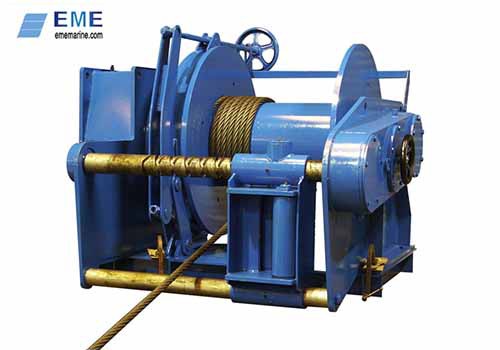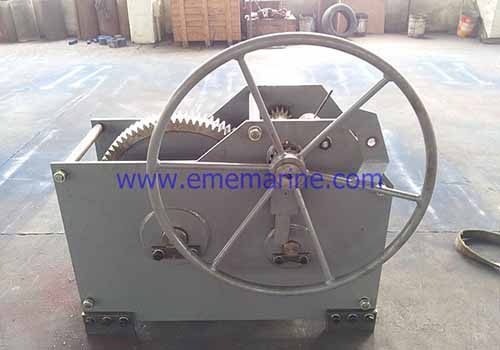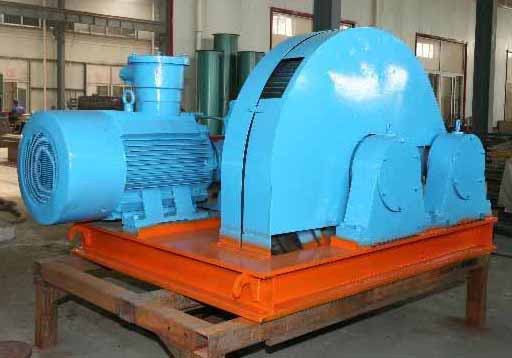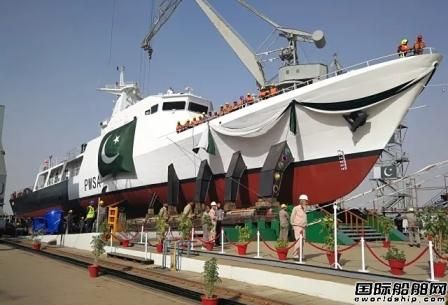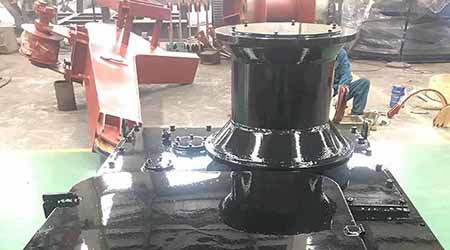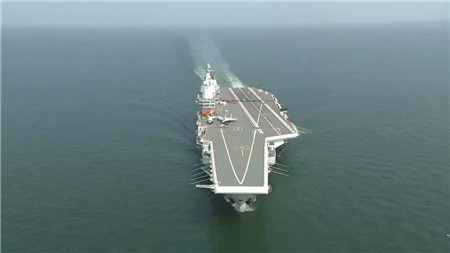
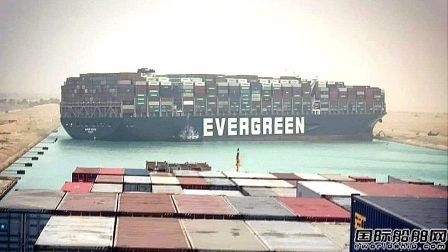
The Suez Canal "ship jam" incident has sparked global concern. A grounding of an Evergreen Marine container ship in the Suez Canal has forced the disruption of the world's busiest maritime trade route, with nearly 200 ships blocked so far and long queues of ships forming a "blocked ship" spectacle. This "black swan" incident has also had a huge impact on global trade."
"Chang Chi ship runs aground, suspected to have been hit by high winds and sandstorm
At around 0800 hours Egyptian time on 23 March (1400 hours Beijing time on the same day), Ever Given, an Evergreen Marine vessel, was entering the Suez Canal from the Red Sea northbound when it was stranded at the southern end of the estuary six nautical miles from the mouth of the river in what was suspected to be a strong 42-magnitude side wind, causing the vessel to veer off course and accidentally run aground. Evergreen Marine has urged the shipowner to report the cause of the accident and to work out a plan with the Canal Authority and other relevant units to assist the ship to get out of trouble as soon as possible.
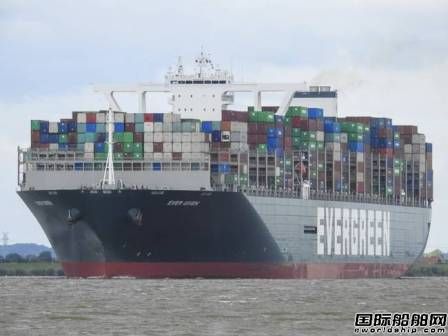
It is understood that the vessel is a 20,388 TEU ultra-large container ship, 400 metres long, 59 metres wide, with a draft of 15.7 metres and a gross tonnage of 219,079 tonnes, which was built by Imabari Shipbuilding in Japan and delivered in 2018. At this time, Shoei Kisen refused to comment on the accident.
"The vessel, which was deployed on the Far East-Europe route, departed Ningbo on March 4, passed through Taiwan, Yantian and Tanjung Parapas, Malaysia, and arrived at the Suez Canal in Egypt on March 22, and was due to arrive in Rotterdam, the Netherlands, on March 31.
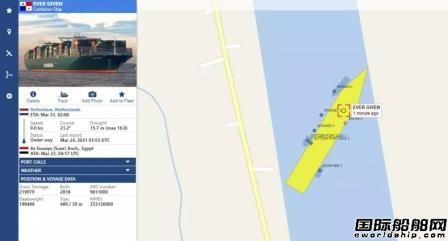
Satellite data shows that the vessel is stuck a short distance north of the southern end of the Suez Canal, with its bow touching the eastern bank of the canal and its stern close to its western bank.
"Bernhard Schulte Shipmanagement (BSM), the ship's management company, said there were no casualties on board and no reports of pollution, and in an emailed statement BSM said it was working with Suez Canal authorities and service providers to get the ship out of the water. "The vessel was run aground.
Preliminary investigations indicate that the grounding may have been caused by high winds, and mechanical or engine failure has been ruled out for the time being, and the ship will undergo a full inspection once it has been de-grounded. According to local meteorological reports in Egypt, gusty winds and dust storms were blowing in the area on March 23, with gusts of up to 50km/h.
Suez Canal remains blocked after being stranded for over 24 hours
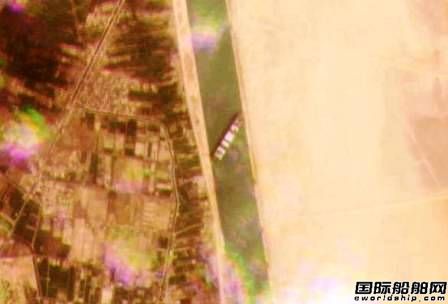
Since the incident, the Suez Canal Authority has deployed eight tugboats to deal with the accident. Excavators have also been sent to the site to try to remove the soil and the rescue operation is expected to take at least two days. Local Egyptian media quoted the Suez Canal Authority as saying that it could take several days for the canal to resume navigation.
The ship has been partially refloated after being stranded for more than 24 hours, but the Suez Canal remains closed until now. The Egyptian government is organising local efforts to rescue the ship, but there has been no progress due to the sheer size of the vessel.
The Suez Canal Authority said that the rescue of the ship will resume in the morning of 25 March local time, when a team of experts from SMIT Salvage, a leading Dutch salvage company, will assist in the removal of the vessel. The ship's condition.
Shipping agency Inchcape Shipping Services reports that while rescue efforts have been temporarily suspended, the dredger will continue to work in the meantime to try to improve the ship's locked condition. The Suez Canal Authority has not yet been able to give a specific time frame for the expected opening of the Suez Canal, and the market expects the Canal to be unblocked and open to traffic by 25 March at the earliest.
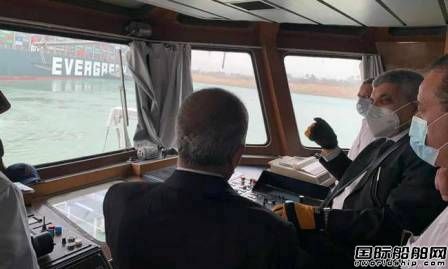
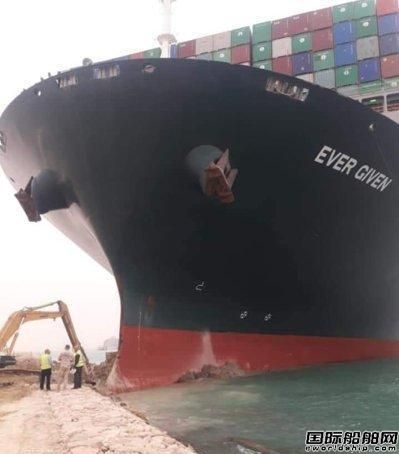
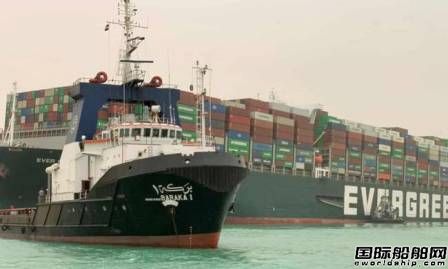
Boskalis, the parent company of SMIT, confirmed that SMIT had been appointed by the ship's owner to assist in the rescue effort and had sent a 10-man team to Egypt. The ship's front and stern ends are mired in mud and, based on available location information, ballast water and fuel may need to be drained to reduce the ship's weight.
In an interview with the BBC, US maritime historian Sal Mercogliano said that such accidents were rare but could have "a huge impact on global trade"; "This is the largest ship ever to run aground in Suez and "If the ship cannot get out of the water at high tide, "they will have to start unloading their cargo" to speed up the extrication.
Hundreds of ships unable to pass may push up shipping rates
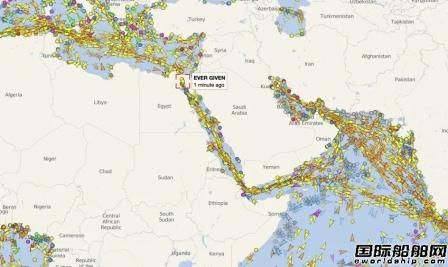
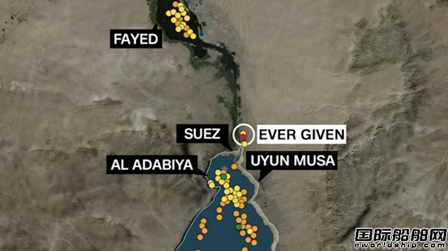
At the time of the grounding, the hull of the vessel was stuck in the channel of the Suez Canal, blocking traffic in both directions. According to data compiled by Bloomberg, 185 ships were waiting to cross the Suez Canal on 24 March, most of them bulk carriers, container ships, oil tankers or chemical tankers.
Maersk Line, the world's largest consolidator, confirmed that seven of its ships had been affected by the accident so far, "four of which are trapped in the canal system and the rest are waiting to enter the canal".
Ralph Leszczynski, head of research at shipbroker Banchero Costa, said, "Tug salvage is underway and is expected to take several days." Park Moo-Hyun, an analyst at Hana Financial Investment in South Korea, said, "Considering that the vessel is almost fully loaded, it may take some time to transfer the ship."
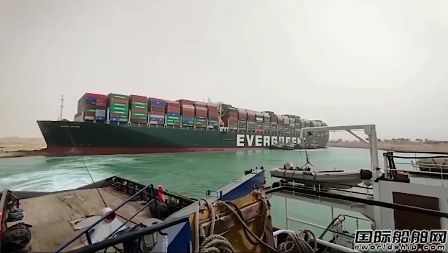
Chun Hyungjin, a researcher at the Korea Maritime Institute (KMI), noted, "Any prolonged disruption would mean that ships would need to change routes, which would push up freight rates." For his part, Leszczynski said, "Ships could go around the Cape of Good Hope, but this would add about two weeks to the voyage from Asia to Europe, incurring huge additional costs and disrupting all flight schedules."
Investment bank Fearnley Securities said delays and congestion tend to have a positive impact from a shipping perspective, and Clarksons Platou Securities also said the Suez Canal shutdown for a few days could affect capacity in other parts of the world, which usually favours higher freight rates, "although we don't expect the impact to last long, capacity in the container industry is already quite tight, with ports around the world heavily congested".
VesselsValue data shows that 56 vessels were located in and around the Suez Canal at anchor or at terminals on 24 March, including two LNG vessels, three LPG vessels, 12 bulk carriers, 13 container vessels and 26 tankers.
The world's busiest waterway with an average of over 50 ships per day
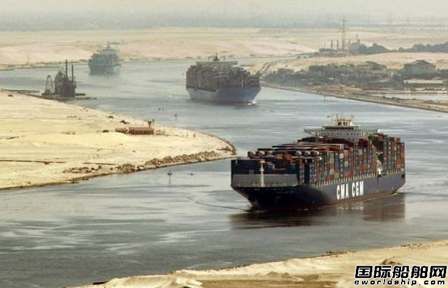
The 193-kilometre-long Suez Canal is one of the world's busiest waterways, with around 12 per cent of global trade, around 10 per cent of offshore oil trade and 8 per cent of global LNG transported through the canal. According to a report released by the Suez Canal Authority in January this year, a total of 18,829 ships with a net tonnage of 1.17 billion tonnes will pass through the Suez Canal in 2020, which translates into an average of 51 ships per day.
In addition to Middle Eastern crude oil being shipped to European and North American markets, in recent years the Suez Canal has also become an important route for Russian oil to Asia. According to the US Energy Information Administration (EIA), the Suez Canal and its connected Sumed Pipeline system accounted for nearly 10% of the world's total seaborne oil trade in 2018, and the EIA said that around 8% of LNG trade that year also used the Suez Canal as a conduit.
Samir Madani of TankerTrackers said: "The canal is a choke point for global trade and if they can get this ship out of trouble quickly then the impact will be minimised, but any time the blockage lasts a little longer there will be serious consequences - from affecting oil prices and freight rates, to forcing container ships to choose to bypass Africa and greatly increase their voyage."
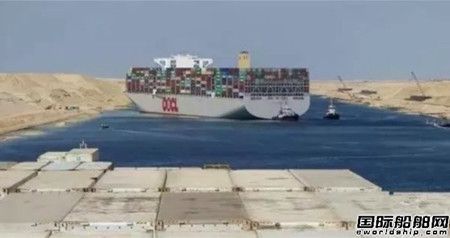
In the past, the Suez Canal has occasionally been grounded due to ships running aground. In 2016, the Maersk Shams, a 9,962 TEU container ship, also ran aground briefly. The most serious incident occurred in 2004 when the tanker Tropic Brilliance ran aground and forced the Suez Canal to close for three days before 25,000 tonnes of oil were pumped out of the vessel.
A similar grounding in recent years was the 19,100 TEU CSCL Indian Ocean in the Elbe River, Germany, in 2016. At that time, the CSCL Indian Ocean ran aground in the Elbe River for five days before it was successfully released. 12 tugs were deployed by the German authorities to help remove the vessel from the riverbed, and over 6,500 tonnes of heavy fuel oil, gas and ballast water were removed by the crew during the first four days of the grounding to ease the rescue effort.
Taixing Expansion Marine Equipment (EME) is the professional designer, manufacturer and exporter of mooring winch, positioning winch, towing winch, anchor winch, diesel winch, electric windlass, hydraulic windlass, diesel windlass, electric capstan, hydraulic capstan, pneumatic capstan etc. Our products are mainly for scientific research vessel, navy vessel, working barge, tug, cargo vessel, oil tanker, offshore platform etc.
